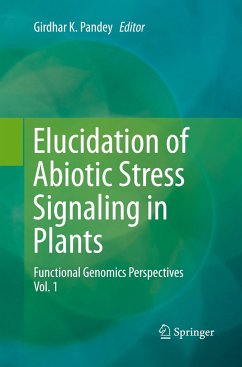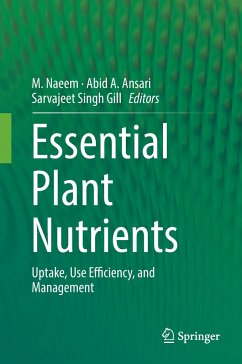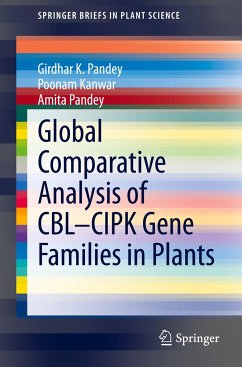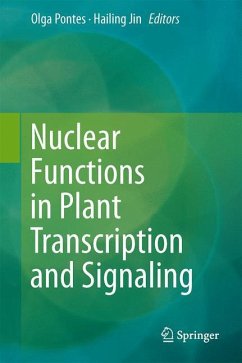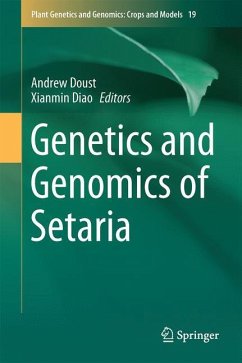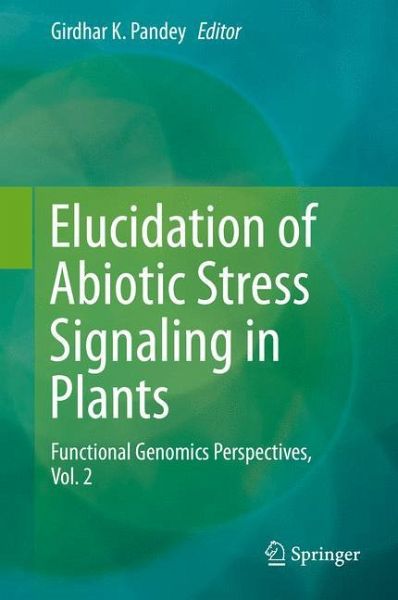
Elucidation of Abiotic Stress Signaling in Plants
Functional Genomics Perspectives, Volume 2
Herausgegeben: Pandey, Girdhar K.

PAYBACK Punkte
57 °P sammeln!
In this volume, several world leaders in plant biology provide insight into stress signaling in plants with a special emphasis on functional genomics aspect. This book utilizes state-of-the-art research in the field of stress mediated signaling to develop a better and holistic understanding of stress perception, its transduction followed by the generation of response.
In spite of the advent of different approaches to devise strategies for developing stress tolerant crops towards multiple stress conditions in the field, the success in achieving this goal is still unsatisfactory. Stress tolerance is a very complex process involving a plethora of components starting from stress sensing to generation of final adaptive response. There are several factors, which act as nodes and hubs in the signaling pathways, also serving as master-control switches in regulating myriad stress signaling pathways by affecting diverse target genes or gene products to finally bring-about a stress tolerance response. Therefore, in-depth understanding of these master-control switches and key-components in signal transduction pathway will be highly beneficial for designing crop plants tolerant to multiple stresses in the field.
In spite of the advent of different approaches to devise strategies for developing stress tolerant crops towards multiple stress conditions in the field, the success in achieving this goal is still unsatisfactory. Stress tolerance is a very complex process involving a plethora of components starting from stress sensing to generation of final adaptive response. There are several factors, which act as nodes and hubs in the signaling pathways, also serving as master-control switches in regulating myriad stress signaling pathways by affecting diverse target genes or gene products to finally bring-about a stress tolerance response. Therefore, in-depth understanding of these master-control switches and key-components in signal transduction pathway will be highly beneficial for designing crop plants tolerant to multiple stresses in the field.
Abiotic stresses such as high temperature, low-temperature, drought, and salinity limit crop productivity worldwide. Understanding plant responses to these stresses is essential for rational engineering of crop plants. In Arabidopsis, the signal transduction pathways for abiotic stresses, light, several phytohormones and pathogenesis have been elucidated. A significant portion of plant genomes (most studies are Arabidopsis and rice genome) encodes for proteins involves in signaling such as receptor, sensors, kinases, phosphatases, transcription factors and transporters/channels. Despite decades of physiological and molecular effort, knowledge pertaining to how plants sense and transduce low and high temperature, low-water availability (drought), water-submergence and salinity signals is still a major question before plant biologists. One major constraint hampering our understanding of these signal transduction processes in plants has been the lack or slow pace of application of molecular genomic and genetics knowledge in the form of gene function. In the post-genomic era, one of the major challenges is investigation and understanding of multiple genes and gene families regulating a particular physiological and developmental aspect of plant life cycle. One of the important physiological processes is regulation of stress response, which leads to adaptation or adjustment in response to adverse stimuli. With the holistic understanding of the signaling pathways involving not only one gene family but multiple genes or gene families, plant biologists can lay a foundation for designing and generating future crops that can withstand the higher degree of environmental stresses (especially abiotic stresses, which are the major cause of crop loss throughout the world) without losing crop yield and productivity. Therefore, in this proposed book, we intend to incorporate the contribution from leading plant biologists to elucidate several aspects of stress signaling by functional genomic approaches.






